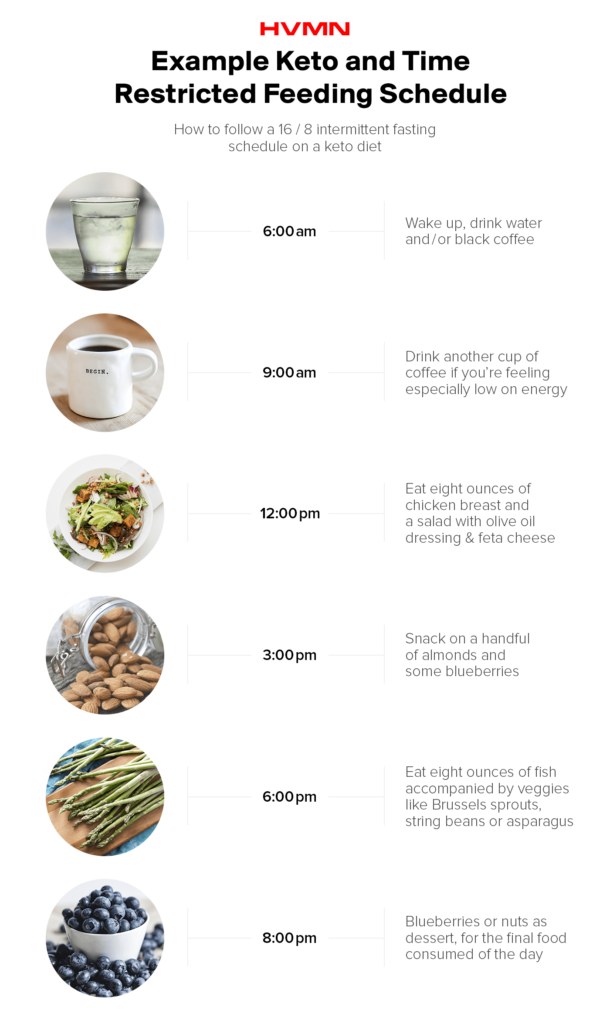Intermittent fasting has gained considerable popularity as a weight-loss strategy, but there are significant nuances often overlooked. This article explores key findings on how blood sugar fluctuations can lead to irritability, commonly referred to as “hanger.” You will learn about a study that highlights the relationship between low blood sugar levels and mood, alongside alternative methods to maintain stable energy levels without frequent eating.
Furthermore, the discussion will address the role of metabolic flexibility in managing hunger and emotions effectively. Insights will be provided on how ketones can stabilize both blood sugar and mood, along with personal experiences related to incorporating MCT oil into one’s diet. Through this exploration, a clearer understanding of intermittent fasting’s true implications will emerge, empowering you to make informed decisions regarding your health and dietary practices.
Understanding Intermittent Fasting

Definition and Popularity
Intermittent fasting (IF) refers to an eating pattern that cycles between periods of fasting and eating. Unlike traditional diets that focus on what you eat, IF emphasizes when you eat. This approach has gained immense popularity in recent years, not just among those looking to lose weight, but also with individuals interested in improving their overall health and metabolic function. With the rise of social media and health influencers, the discourse surrounding IF has increased dramatically, leading to a surge of individuals seeking to understand the potential benefits and drawbacks associated with this eating strategy.
Historical Context
Intermittent fasting is not a new concept; it has roots in various cultural and religious practices. Historically, fasting has been employed for spiritual, health, and cultural reasons. Ancient Greek philosophers, many of whom believed in the health benefits of fasting, incorporated it into their philosophical practices. In many religious traditions, fasting serves a dual purpose of spiritual reflection and physical discipline. However, the modern understanding and application of intermittent fasting have transformed it into a more structured and scientifically scrutinized approach, largely popularized in the 21st century as a lifestyle choice aimed at enhancing health and longevity.
Different Approaches to Intermittent Fasting
There are several popular approaches to intermittent fasting, each with its unique characteristics. The 16/8 method, perhaps the most well-known, involves fasting for 16 hours each day and restricting eating to an 8-hour window. Another common approach is the 5:2 diet, where individuals consume a regular diet for five days of the week while limiting caloric intake to about 500-600 calories on the other two days. Alternate-day fasting, which consists of rotating between days of no calorie restriction and days of fasting, is also gaining traction among those looking for substantial metabolic and health benefits. Each method has its advantages and disadvantages, making it important for you to choose one that fits your lifestyle and goals.
The Science Behind Intermittent Fasting
Mechanisms of Fasting
Fasting triggers numerous biological processes within your body, including autophagy, the natural process of cellular repair and renewal. During this state, your cells degrade and recycle waste material, which can lead to improved cellular health and function. Additionally, fasting induces a state of ketosis, where the body shifts from using glucose as its primary energy source to utilizing fat stores, promoting fat loss. Understanding these mechanisms allows you to grasp why intermittent fasting is being embraced by many as an effective health strategy.
Impact on Metabolism
Intermittent fasting can have a significant impact on your metabolism, mainly through insulin sensitivity. When you fast, insulin levels drop, which facilitates fat burning. Higher levels of insulin sensitivity can increase your body’s efficiency in processing glucose. Regulation of metabolism can also assist in weight loss and fat loss, contributing to a leaner physique. In essence, IF could be a powerful tool in enhancing metabolic health as it promotes an efficient energy pathway.
Hormonal Changes During Fasting
Fasting leads to hormonal shifts that can affect your metabolism and appetite. For instance, levels of human growth hormone (HGH) can skyrocket, enhancing fat metabolism and muscle preservation. Additionally, norepinephrine is released, helping your body break down fat for energy. Changes in leptin and ghrelin, hormones responsible for hunger regulation, can also occur, potentially making you feel less hungry during your fasting period. Understanding these hormonal changes can help you increase your effectiveness and discipline in intermittent fasting.
Potential Benefits of Intermittent Fasting
Weight Loss and Body Composition
One of the primary reasons individuals adopt intermittent fasting is for weight loss. By reducing the time window for eating, most people inadvertently consume fewer calories, leading to weight loss. Additionally, the metabolic changes I mentioned earlier further promote fat burning. Research suggests that intermittent fasting can lead to both a decrease in body weight and an improvement in lean body mass, making it a compelling approach for those seeking to enhance their body composition.
Improved Insulin Sensitivity
Improved insulin sensitivity is another significant benefit of intermittent fasting. In essence, this means your body can efficiently use insulin to control blood sugar levels. Enhanced insulin sensitivity is crucial for reducing the risk of diabetes and other metabolic disorders. Regularly practicing intermittent fasting can help keep your blood sugar levels stable, supporting overall metabolic health and longevity.

Psychological Benefits and Focus
Many practitioners of intermittent fasting experience improved mental clarity and focus, particularly during fasting periods. Some studies suggest that fasting can lead to increased production of brain-derived neurotrophic factor (BDNF), a protein that promotes neuron growth and survival. This has implications for cognitive function and mental clarity. Furthermore, the psychological benefits of having a structured eating schedule can also lead to improved focus and productivity in various aspects of life.
Unforeseen Consequences of Intermittent Fasting
Nutrient Deficiencies
While intermittent fasting has its benefits, it may also lead to nutrient deficiencies if not managed properly. Restricting food intake can result in inadequate consumption of essential vitamins and minerals unless careful planning is undertaken. It is crucial to ensure that you are still meeting your nutritional needs within your eating window, which requires being mindful of food selections and overall dietary balance.
Disordered Eating Patterns
For some individuals, intermittent fasting could trigger disordered eating patterns, especially those predisposed to such tendencies. The rigidity of strict eating windows might lead to binge eating during the allowed periods or unhealthy fixation on food. If you find that your relationship with food becomes strained while practicing intermittent fasting, it may be wise to reassess your approach or consult a healthcare professional.
Mental Health Concerns
In addition to the potential physical consequences, intermittent fasting may also have mental health implications. Feelings of deprivation, frustration, or irritability may surface during fasting periods, particularly if the practice is not sustainable for you. If you have a history of mental health issues, it may be advisable to approach intermittent fasting with caution and seek guidance from a qualified health professional.
The “Hanger” Phenomenon
Understanding Hanger
The term “hanger” refers to the irritable state that can arise when blood sugar levels drop during fasting. As your body experiences lower glucose availability, you may notice increased irritability or frustration. This phenomenon is significant, particularly when attempting to adhere to a fasting regimen. Recognizing hanger can help you develop strategies to manage it effectively.
Scientific Studies on Mood Changes
Recent studies have highlighted the connection between blood sugar fluctuations and mood changes, supporting anecdotal experiences of irritability during fasting. Research indicates that individuals may exhibit decreased impulse control as glucose levels diminish, leading to increased frustration and mood swings. Understanding this relationship can empower you to adopt better strategies to mitigate these mood changes during fasting.
Strategies to Manage Hanger
To minimize the effects of hanger, several strategies can be strategically implemented. Staying well-hydrated and incorporating electrolytes may significantly alleviate feelings of irritability. Additionally, ensuring that your meals are nutrient-dense during your eating windows can help maintain stable blood sugar levels. Engaging in physical activity during fasting hours can also promote mood stability by mobilizing stored energy and stimulating the release of endorphins.
The Role of Insulin Resistance
Connection with Fasting
Insulin resistance is a metabolic condition where your body’s cells become less responsive to insulin, leading to elevated blood sugar levels and potential health complications. Intermittent fasting can play a pivotal role in addressing insulin resistance by improving insulin sensitivity and reducing overall insulin levels. Understanding the connection between fasting and insulin resistance can empower you to make informed dietary choices.

Effects on Mood and Behavior
The fluctuations in blood sugar levels associated with insulin resistance can significantly affect your mood and behavior. Research indicates that individuals with insulin resistance may experience mood swings and increased irritability. Understanding this connection is essential for recognizing when fasting might become challenging due to mood fluctuations.
Management Strategies for Insulin Resistance
Managing insulin resistance effectively requires a multifaceted approach. In addition to incorporating intermittent fasting, ensuring a balanced diet low in refined sugars and high in fiber can aid in stabilizing blood sugar levels. Regular physical activity and weight management are also crucial. Combined with fasting, these approaches can have a synergistic effect on improving both insulin sensitivity and overall well-being.
Maintaining Blood Sugar Stability
The Importance of Stable Blood Sugar Levels
Stable blood sugar levels are critical for sustaining energy, mood, and overall health. When blood sugar levels fluctuate dramatically, it can lead to feelings of fatigue, irritability, and decreased cognitive function. For those engaged in intermittent fasting, maintaining blood sugar stability is essential to successfully manage fasting periods without significant mood disruptions.
Impact on Mood and Impulse Control
Research has shown that fluctuations in blood sugar can directly impact mood and impulsiveness. Lower blood sugar levels are often correlated with irritability and loss of impulse control, which can affect relationships and productivity. By prioritizing blood sugar stability, you can mitigate these negative impacts during fasting and promote a more balanced emotional state.
Strategies to Stabilize Blood Sugar
To stabilize blood sugar levels effectively, consider incorporating the following strategies: prioritize nutrient-dense foods rich in fiber and healthy fats during your eating window, engage in regular physical activity, and utilize mindfulness techniques to manage stress, which can also influence glucose levels. Furthermore, consider exploring tools for personalized monitoring of blood sugar levels to allow for more precise adjustments in your diet and fasting practices.
The Potential Risks and Drawbacks
Health Risks Associated with Fasting
While the potential benefits of intermittent fasting are well-documented, it is essential to consider potential health risks. Rapid weight loss, dehydration, and the development of electrolyte imbalances can arise in some individuals, especially if insufficient hydration and nutrient intake occur. Being aware of these potential risks allows you to approach intermittent fasting with caution and appropriate foresight.
Long-term Sustainability
The long-term sustainability of intermittent fasting is a critical consideration. Some individuals may find it difficult to maintain this eating pattern over time, which could lead to inconsistency and frustration. Before embarking on an intermittent fasting journey, you should evaluate whether this approach is compatible with your lifestyle and if it’s achievable for the long term.
Who Should Avoid Intermittent Fasting
Certain populations should approach intermittent fasting with caution or outright avoid it altogether. Individuals with a history of eating disorders, pregnant or breastfeeding women, and those with specific metabolic disorders should consult their healthcare providers before initiating this dietary approach. It’s essential to respect your body’s unique needs and limitations when considering any significant changes to your eating patterns.
Personal Experiences and Anecdotes
Dr. Boz’s Insights
Dr. Annette Bosworth, a respected figure in the field of health and nutrition, frequently shares her insights on healthcare practices, including intermittent fasting. Her observations often highlight personal experiences and empirical evidence of how intermittent fasting can positively impact metabolic health and psychological well-being. By understanding her journey, you might glean valuable insights that can inform your own fasting experience.
Case Studies and Testimonies
Real-life case studies and testimonies provide compelling insights into the effects of intermittent fasting on various individuals. Many participants report significant weight loss, improved mental clarity, and enhanced energy levels. However, there are also narratives of individuals facing challenges, such as nutrient deficiencies or struggles with mood control. These accounts can serve as a source of motivation and caution for you as you explore your fasting journey.
Lessons Learned from Real-life Applications
Reflecting on real-life experiences can provide profound lessons regarding the implementation of intermittent fasting. It becomes clear that while fasting can offer numerous benefits, it is not a one-size-fits-all approach. Learning from others’ successes and setbacks can help you tailor your intermittent fasting strategy to suit your unique circumstances, ensuring a more sustainable path toward achieving your health goals.
Conclusion
Summary of Findings
In summary, intermittent fasting presents a viable method for improving metabolic health, weight management, and even psychological well-being. While its popularity has led to more conversations around its benefits, it is equally critical to consider the potential risks and challenges associated with this eating strategy. Maintaining a balanced approach while listening to your body’s cues will enable the best practices for success.
Individual Considerations
Individual considerations, including lifestyle, energy levels, and history with food, play a significant role in determining if intermittent fasting is the right choice for you. It is crucial to understand and respect your unique health needs while pursuing health and wellness goals.
Final Thoughts on Intermittent Fasting
As you contemplate incorporating intermittent fasting into your lifestyle, remain open to experimentation and adjustment. Every individual’s experience is different, and it is vital to develop a plan that aligns with your personal health objectives while prioritizing nourishment and balance. Armed with knowledge and awareness, you can make informed decisions about your dietary and fasting practices moving forward.







